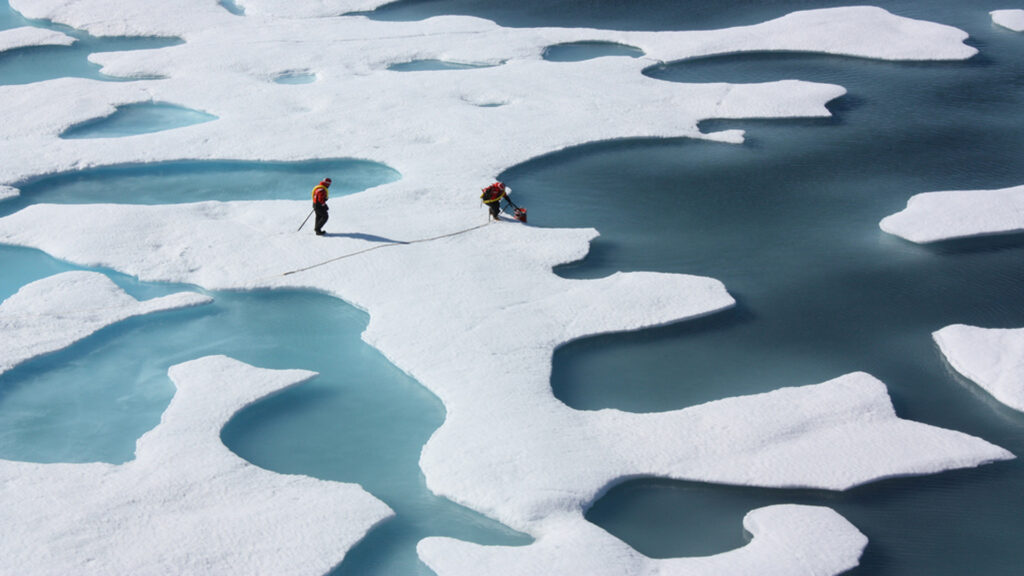By William McQuilkin
As the year draws to a close, I couldn’t help but think back on the 2024 hurricane season. I thought not just about the devastation faced by some of our fellow Floridians, especially those on the Gulf Coast, but also our human family in the southern Appalachians. Who would have thought that brave souls in western North Carolina would still be trying to recover from Hurricane Helene in late December?
And then I thought back to earlier this year, when Florida passed a law that, in effect, removed the words “climate change” from state laws. The move came after 2023 was the hottest year on record, and 2024 is set to be even hotter, according to the National Oceanic and Atmospheric Administration. This kind of legislation is not what the good people of Florida deserve and is a failure of policy and, ultimately, leadership.
Removing the words “climate change” from state statutes reminded me of the words attributed to Galileo after he was forced to recant his belief that the Earth revolves around the sun. He is said to have uttered, “Eppur si muove,” an Italian phrase that translates to, “And yet it moves.” Our state laws might not want to acknowledge climate change, and yet it changes.

I remember a conservative think tank on the military implications of the opening of the Arctic Ocean due to a warming climate. It was a good discussion and the findings were well received, but I vividly recall one of the panel members closing remark: “Let’s remember that correlation is not causation.” His comments referred to my illustration of the significant retreat of sea ice due to warming temperatures.
For me, these comments signified one of the major problems in addressing climate change — an unwillingness by some to be open to a meaningful conversation, despite the rigorous science supporting the data. Instead, they fall back on pat talking points. It also was a reminder of the influence large donors and industry-funded think tanks have on policy.
We cannot let the important work of climate change mitigation and adaptation, of building resilience in our communities, get caught up in the larger culture wars. The stakes are too high, and the work is too great. The scale of the challenge ahead and the costs of adaptation, mitigation and storm recovery will be enormous.
Significant public and private investment will be needed. All of this will require smart choices guided by honest conversations, conversations that must start with an acknowledgment of the problem and calling climate change what it is.
Climate change denial does a disservice to all the people who have their shoulders to the wheel in our state’s resilience, disaster recovery, scientific and local business communities working to find solutions to the challenge of our age. Denial doesn’t help everyone who watched the encroaching waters rise at their doorsteps this fall. It doesn’t comport with the sense of truth that, at our core, makes us who we are.

Climate denial also does a disservice to the hard-working men and women trying to make a living outside in a heat index (factoring in both heat and humidity) of 105 degrees, a point at which the National Weather Service warns of the danger of heat stroke. It makes you wonder how many of our lawmakers (or well-dressed lobbyists, for that matter) passing those laws have actually worked outside in the hot Florida summer sun.
Combatting the climate crisis will not be easy or cheap. It will also require leadership and a statewide strategy. We will need to overcome both economic and political inertia. Real leadership means meeting people where they are and talking to them straight about the hard road and choices ahead.
Our state politicians have an important role in communicating and leading this change. A legislative body that only meets for 60 consecutive days a year must have more important things to do than erasing references to global warming from state laws. Let’s tell our elected officials where we stand on these important issues and vote accordingly.
William McQuilkin is a retired U.S. Navy rear admiral and former director of Navy strategy and policy who grew up on the Gulf Coast of Florida. This opinion piece was originally published by the Tampa Bay Times, which is a media partner of The Invading Sea. Banner photo: U.S. Airmen assigned to the Florida Air National Guard clear roads in Keaton Beach after the landfall of Hurricane Helene on Sept. 27. (Staff Sgt. Jacob Hancock/The National Guard, CC BY 2.0, via flickr).
Sign up for The Invading Sea newsletter by visiting here. To support The Invading Sea, click here to make a donation. If you are interested in submitting an opinion piece to The Invading Sea, email Editor Nathan Crabbe at nc*****@*au.edu.




Great column, nice and simple to understand — even by the dictatorship in Tallahassee.